Newsmaker for Apartheid Fight, Haiti, Reparations
Homepage photo: Randall Robinson on WDET-TV in Detroit in 2018, commemorating the 100th anniversary of Nelson Mandela’s birth. (Credit: Jake Neher/WDET)
[btnsx id=”5768″]
Donations are tax-deductible.
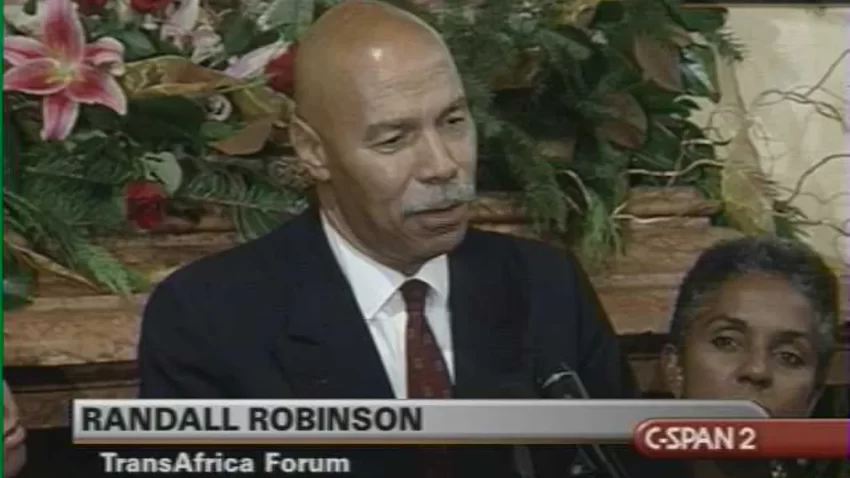
Newsmaker for Apartheid Fight, Haiti, Reparations
Randall Robinson, “human rights advocate, author, and law professor,” in the words of The HistoryMakers, died Friday morning at age 81, James Hudson, a colleague at TransAfrica, the Washington-based organization Robinson founded, told Journal-isms on Saturday.
He had been hospitalized and died in a hospital on St. Kitts, the Caribbean island to which he fled, disillusioned with the United States, in 2001. His wife, Hazel Ross-Robinson, messaged March 26 that the cause of death was aspiration pneumonia.
Robinson was known to journalists not only as founder of TransAfrica, established in 1977 and soon a force in the struggle against apartheid, but as the younger brother of pioneering broadcast journalist Max Robinson and as an advocate for reparations who in 2000 wrote “The Debt: What America Owes to Blacks.”
In that capacity, Journal-isms invited Robinson to join a Journal-isms Roundtable on reparations that would take place on Jan. 30.
“I will, unfortunately, be unable to participate but would like to say that there are few better equipped to speak on ‘What journalists need to know about Africa‘ than Thabo Mbeki, former president of South Africa, and the leading force behind the African Renaissance,” Robinson messaged Dec. 30 from St. Kitts.
“With reference to reparations, Ta-Nehisi Coates, as you know, has written extensively and brilliantly on the topic, and there are few international voices as utterly compelling as that of Dr. Hilary Beckles, Vice-Chancellor of the University of the West Indies” and chair of the reparations campaign for CARICOM, a union of 20 – – member and associate — countries in the Caribbean. He wished us a “very successful session,” which it was.
Sent a link to the video of the session, Ross-Robinson wrote back last week on her husband’s behalf. “Thank you for these links and, most importantly, for inviting journalists — and the public — to explore this complex and important topic.”
In 2006, Bill Fletcher Jr., who followed Robinson in what was by then called the TransAfrica Forum, stepped down. He wrote, “On one level it was impossible to follow from Randall.
“Randall had become almost larger than life. He was a great leader of a great cause, and was completely associated with the struggle against apartheid, and deserves such credit for his leadership.
“Yet Randall encountered a number of issues after the victory of the anti-apartheid movement that have haunted us ever since: (1) is there an issue that can bring forward the mobilization that the anti-apartheid struggle did?, and (2) how do we take on campaigns around injustices where race is not the determining feature, i.e., issues or struggles where the situation does not fit neatly into a dynamic of oppressed Black masses vs. oppressor white elites?”
Hudson, who was a lawyer at TransAfrica, emphasized that the organization was “The African-American Lobby for Africa and the Caribbean,” particularly Haiti, its concerns more encompassing than apartheid. Robinson wrote “An Unbroken Agony” in 2008, about Haiti and its embattled president, Jean-Bertrand Aristide.
The organization shut down about eight years after Robinson left, Hudson said.
Robinson had his admirers in the media. In an award-winning 1994 column from Donna Britt in The Washington Post, “A Valentine to Black Men,” Britt namechecked Robinson “for being so elegantly angry.”
Karlyn Barker, who covered the daily anti-apartheid demonstrations outside the South African embassy for the Post in the mid-1980s, told Journal-isms, ” Randall and TransAfrica staff did an amazing job of keeping the media’s attention on the daily protests/arrests at the embassy that went on for a full year as I recall.
“One day it was school children. Another day Bishop [Desmond] Tutu. Always a personage or a little twist or a big group of arrestees to keep the anti-apartheid issue front and center. And when the divestiture campaign gained steam, the [apartheid] policy was abolished and [Nelson] Mandela’s release assured.”
Asked about Robinson’s connection to journalists, Hudson said, “his deepest pleasure was writing and thinking about things.”
There was more, even touching on the current debate over “objectivity.” In “The Debt,” Robinson wrote, “For more than twenty years I have read newspaper accounts of developments in Africa and the Caribbean in which I have had a direct firsthand involvement. Often the coverage has been fraught with factual error, critical omission, and wrongheaded perspective. Most of the misdescription was due, I supposed, to inadvertence or incompetence as opposed to bad intentions.
“The point is this. Even well-meaning, competent journalists sometime misreport events that occur in the world only days before. Journalism is not an exact science. Historiography is a hundredfold less exact than journalism — even when historians believe themselves sincerely trying to be objective. Their subjects are long dead. Records are incomplete or nonexistent. Flawed premises beget more flawed premises. . . .”
- Herb Boyd, ibw21.org: Randall Robinson, an ardent advocate of human rights, dies at 81 (March 29)
- Donna Britt, Washington Post: An Activist’s ‘Spirit’ of Enduring Love (Jan. 30, 1998)
- Todd Steven Burroughs, Drums in the Global Village: Asante Sana, Randall Robinson
- Joe Davidson, National Leader: INTERVIEW: Randall Robinson: Third World Advocate, 1983 (republished by Black Agenda Report, March 29)
- Amy Goodman, “Democracy Now!”: Randall Robinson (1941-2023) on Haiti’s Unbroken Agony, from U.S. Coups to Haiti’s “Debt” to France (March 28)
- Bob Herbert, New York Times: In America; The Spirit of Randall Robinson (Jan. 22, 1998)
- Dr. Maulana Karenga, Los Angeles Sentinel: Remembering and Raising up Nana Randall Robinson: Honoring His Legacy By Continuing It (April 20)
- Emily Langer, Washington Post: Randall Robinson, founder of influential Africa lobby, dies at 81 (March 28)
- Kevin Merida, Washington Post: TransAfrica Leader to Fast in Protest (April 12, 1994)
- Kaitlyn Radde, NPR: Randall Robinson, human rights activist and lawyer, has died at 81 (March 26)
- Sam Roberts, New York Times: Randall Robinson, Anti-Apartheid Catalyst, Is Dead at 81 (March 28)
- Nkechi Taifa, medium.com: Randall Robinson, 1941–2023: What’s the Word?! (March 26)
- Michael Paul Williams, Richmond (Va.) Times-Dispatch: The injustice Randall Robinson faced in his native Richmond shaped his global fight for human rights (March 28)
Chapman Named AJC’s First Black Top Editor
March 23, 2023
12-Year Staffer Calls It ‘Fantastic American Story’
Carbajal Leaving Al Día, Dallas Morning News
Graham Lee Brewer Moves Up to NAJA President
[btnsx id=”5768″]
Donations are tax-deductible.

12-Year Staffer Calls It ‘Fantastic American Story’
“The Atlanta Journal-Constitution has named Leroy Chapman Jr. editor-in-chief to replace Kevin Riley, who announced his retirement Thursday,” Michael E. Kanell reported for the news organization.
Chapman, 52, now managing editor, will be the first Black top editor in the newspaper’s 155-year history.
“For the AJC’s editor to be a person of color is a reflection of the history: the paper’s, the city’s and his family’s,” Chapman told Kanell.
”My family traces its history back to Colonial times,” he continued. “There is an arc from seeing my family on census reports listed as property all the way to this. It is a fantastic American story.”
Every mayor of Atlanta has been African American since 1974. That a Black person is now also heading the leading newsroom in what has been called the “Black Mecca” — though the AJC serves the metro area, not just the city — is challenging as well as significant.
As Teresa Wiltz noted for Politico Magazine last year, “Atlanta is a paradox: It’s dynamic, ever-growing, the hip-hop capital, a far more prosperous metropolis than the one I grew up in. But it’s also the capital of yawning racial disparities. Black entertainment moguls live in gated suburban compounds, while others in impoverished pockets of Black Atlanta struggle to get by.”
Chapman has been with the AJC since 2011. “He shepherded coverage of a number of high-profile stories, including efforts to undermine Georgia’s 2020 election results and the court cases of teachers and administrators charged in the Atlanta Public Schools cheating scandal,” Kanell wrote.
“He takes the reins as the AJC is accelerating plans to transform the storied daily newspaper into a 24/7 digital news organization.
” ‘I think that it’s an important moment for this city and Leroy is the right person for this job,’ said Andrew Morse, the AJC’s president and publisher. ‘He shares the vision I have of the AJC as a modern media company. And he agrees that we need to be both essential and engaging in what we cover.’ . . .
“Chapman, a Navy vet, has been a journalist for 28 years. He came to the AJC from The State in South Carolina and lives in Gwinnett County with his wife Dawn. They have three adult children.
“The AJC historically has been a forward-looking voice in a forward-looking city that has been a beacon in the South, a role it should always embrace, Chapman said.
” ‘The AJC should stand on the side of what is right,’ Chapman said, ‘and that’s how history is going to judge us.’ . . .”
- Leroy Chapman, Atlanta Journal-Constitution: Nobody likes the smart kid in the class (July 17, 2020)
- Leroy Chapman Jr., Greenville (S.C.) News: Leroy Chapman Sr.: A man of purpose and influence (June 16, 2017)
- Leroy Chapman, Atlanta Journal-Constitution: My son the graduate is also a Georgian. It’s official. (May 30, 2017)

Carbajal Leaving Al Día, Dallas Morning News
Alfredo Carbajal, a news industry leader who is managing editor of Al Día Dallas, a Spanish-language publication of the Dallas Morning News, is leaving the operation as the Al Dia staff is absorbed into the main Morning News newsroom, Carbajal announced on social media Wednesday.
“I’m leaving The Dallas Morning News and Al Día at the end of March,” wrote Carbajal, president of the American Society of Newspaper Editors in 2017-18 and a lifetime member of the National Association of Hispanic Journalists.
“I started freelancing from El Paso/Ciudad Juárez while being a student at UTEP [University of Texas El Paso] in the late 90s. I joined The (Riverside) Press-Enterprise in 2000 and moved to Dallas in 2003.
“It’s been a great run.
“Along the way, I’ve worked, edited, and collaborated with hundreds of committed and brilliant journalists from whom I have learned so much.
“In my tenure here, I reported and edited stories of all kinds, from local government and elections to cultural trends, and from coverage of businesses and demographics to diverse communities and immigration with an emphasis on the Texas-México border.
“Most importantly, participating in producing impactful accountability journalism to inform and empower readers —in English and Spanish, in print and through digital platforms — it’s been my privilege.
“I’m grateful to readers who shared their stories, often in times of trauma and distress, and on many occasions allowing us to tell inspiring stories of success, resiliency, and humanity.
“Everything starts and ends with people, so I’ll miss our newsroom and the thrill of telling a good story.
“Above all, I thank my newsroom colleagues for working every day in defending journalism and its role in an open, well-informed, and democratic society.
“I’m a romantic of journalism as a service to society, but especially for providing news and information that empowers ALL communities.
“#Journalism matters. Facts and truth matter in a misinformed and polarized society, and I’m taking these convictions to wherever my next chapter takes me.
“Muy agradecido y muchas gracias.”
The DallasNews Corporation is reassigning the Al Día Dallas reporting staff to teams on the Dallas Morning News this month, stoking complaints and concern. In a note to the staff and an interview with the Poynter Institute, Executive Editor Katrice Hardy said the changes are intended to help Al Día expand its audience, which has not been growing.
The Santa Ynez Band of Chumash Indians fought for years for the return of their ancestors’ remains from UC Berkeley. They recently learned that some are still missing. (Credit: NBC/ProPublica)
Graham Lee Brewer Moves Up to NAJA President
Graham Lee Brewer (Cherokee Nation) is the new president of the Native American Journalists Association, the organization announced Tuesday, after President Francine Compton (Sandy Bay Ojibway First Nation) stepped down to join the NAJA staff as associate director.
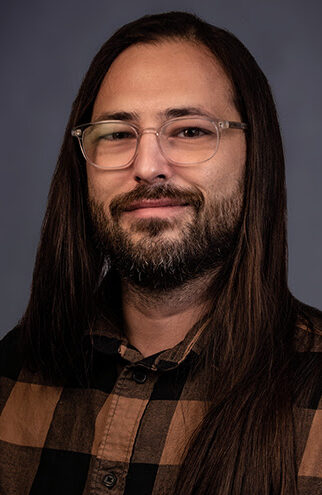 Brewer (pictured) covers indigenous affairs for NBC News, joining the network in 2021 from the print and digital publication High Country News. Earlier this month, in a joint effort with Mary Hudetz of Pro Publica, he reported that “For decades, famed professor Tim White used a vast collection of human remains — bones sorted by body part and stored in wooden bins — to teach his anthropology students at the University of California, Berkeley. . . .
Brewer (pictured) covers indigenous affairs for NBC News, joining the network in 2021 from the print and digital publication High Country News. Earlier this month, in a joint effort with Mary Hudetz of Pro Publica, he reported that “For decades, famed professor Tim White used a vast collection of human remains — bones sorted by body part and stored in wooden bins — to teach his anthropology students at the University of California, Berkeley. . . .
“UC Berkeley conducted an analysis of the collection after White reported its contents in response to a university systemwide order in 2020 to search for human remains. Administrators disclosed to state officials in May that the analysis found the collection includes the remains of at least 95 people excavated from gravesites — many of them likely Native Americans from California, according to previously unreported documents obtained by ProPublica and NBC News. . . .”
Brewer, former NAJA vice president, is to serve as president through the remainder of Compton’s term.
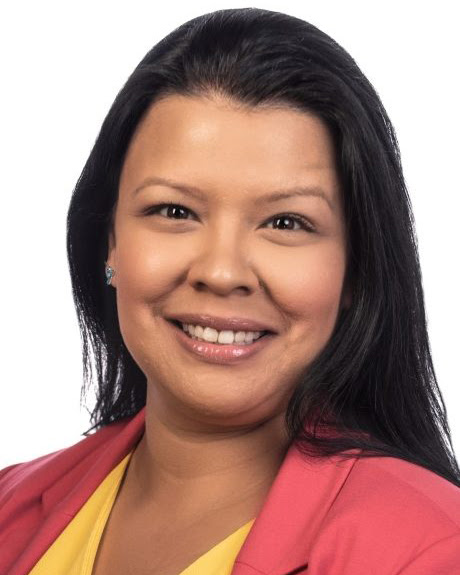 “Compton (pictured) joins NAJA from the Canadian Broadcasting Corporation, where she served as a producer for CBC Indigenous in Winnipeg,” the NAJA announcement said. “Her national newsroom experience will be essential to the NAJA team as the organization holds the first international conference Aug. 10-12 at the Delta Hotel and RBC Convention Center in downtown Winnipeg.
“Compton (pictured) joins NAJA from the Canadian Broadcasting Corporation, where she served as a producer for CBC Indigenous in Winnipeg,” the NAJA announcement said. “Her national newsroom experience will be essential to the NAJA team as the organization holds the first international conference Aug. 10-12 at the Delta Hotel and RBC Convention Center in downtown Winnipeg.
“NAJA will celebrate its 40th anniversary later this year and continues to expand relationships, contacts, and cooperation across borders. Membership will consider a name change to the ‘Indigenous Journalists Association’ during the next election, which will coincide with the 2023 National Native Media Conference. . . .”
The organization has about 950 members, Executive Director Rebecca Landsberry-Baker said.
Rob King Out as Top-Ranking ESPN Exec
March 21, 2023
N.Y. Post Says Harassment Claim Figured in Decision
Homepage photo credit: Poynter Institute, 2016

N.Y. Post Says Harassment Claim Figured in Decision
Rob King, one of sports journalism’s highest-ranking executives, announced Tuesday he is leaving ESPN, with the New York Post’s Andrew Marchand reporting that King had been fired “after he was accused of harassment, The Post has learned.”
Marchand wrote, “The harassment allegations were due to social media posts, which were brought to the attention of ESPN’s Human Resources, according to sources.
“When reached by The Post, ESPN and King both declined comment,” as King did with Journal-isms.
“King, who had been with the company for nearly two decades, had been a rising star at ESPN.
“He once was the head of ESPN.com and, most recently, was the executive at large for special projects, giving him the responsibility for the overall journalistic direction of the company.”
However, King, 60, portrayed his departure differently, and his announcement prompted a flood of support on Facebook, with comments and “likes” to his posting nearing 1,000 in its first six hours.
“Whoa. Congratulations on a great run. I can say from experience that Next Chapters can be wonderful,” wrote David Boardman, longtime newsroom leader now dean of the Klein College of Media and Communication at Temple University..
“King said he is resigning from ESPN,” Tom Jones wrote for the Poynter Institute. “As the Post story was being published online, King tweeted, ‘After nearly 20 years with ESPN, I have decided the time is right for me to leave the company. I’m looking forward to spending more time with my family and friends, and wish the company continued success.’
“Aside from his work at ESPN, King is a member of the Poynter Institute’s Board of Trustees. He also is a member of The Associated Press’ Board of Directors. . . .
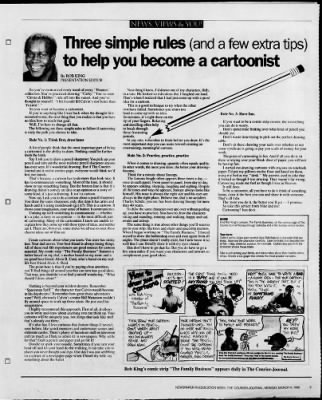
“ESPN described King as ‘responsible for the company’s overall journalistic direction, working closely with leaders across ESPN Films and original content, digital content, social media, multi-platform journalism and storytelling and global content, and advises ESPN and its senior leadership team on editorial issues.’
“Before that, King had held many top jobs at ESPN, including senior vice president of original content, senior vice president of ‘SportsCenter’ and news, and vice president and editor-in-chief of ESPN.com.
“ESPN declined to comment. Reached by Poynter, King said he would let his social media post stand for now. . . .”
Michael McCarthy wrote for Front Office Sports, “King was long one of the most prominent power players at ESPN’s Bristol headquarters for many years, running critical editorial operations like ‘SportsCenter,’ ESPN.com., ESPN Films, and the 30 for 30 documentary series.
“But King’s star dimmed internally after the failure of ‘SC6’ with co-anchors Jemele Hill and Michael Smith in 2018. Both Hill and Smith eventually left ESPN.”
Earlier this month, King was asked about ESPN’s diversity efforts.
“I think during the time I’ve been here we’ve brought a lot of folks in and not only have we upped our game in terms of training and the way we speak about diversity and inclusion, but we’ve had a lot of work in terms of trying to be more representative in terms of the audiences we serve,” King told Jael Rucker of one37pm.com.
“I’ve been very close to a lot of conversations where it was clear that we all have a lot to learn from one another. I’ve had to point to things we’ve put on the air or online that were absolutely fantastic, and there have been things that were not so great. ESPN has always risen above things like that, and we’ve done a lot of work over the past four years — even before George Floyd’s murder. . . .
“Sometimes I like to joke that it’s my full-time job that I can’t really take a vacation from. It’s the job that I have when I’m taking my kids to school, at the grocery store, and walking on the street. Directly there are things I’ve been a part of that have been a great assistance for us. We helped bring in a group called the Inclusive Content Committee, which is now up to 22 leaders . . . plus people who volunteer across ESPN just to sit together, pitch stories, offer feedback, and be a resource for anybody who makes content here.
“We have a lot people involved in both our smaller and major productions whether it’s the NFL or NBA Draft, or right about now where we’re getting ready to go into the NFL Combine where there’s all these words and tropes that [are] used to describe black athletes, or the inevitable comparisons between the White and Black quarterbacks. These are active conversations in terms of how we show up in ways that are thoughtful. The Inclusive Content Committee has been around now for two years, and it’s full of people who are committed to this, be it our content group or our marketing group. . . .”
King, a son of Washington Post columnist Colbert I. King, a former deputy editorial page editor there, and Gwendolyn King, a former Social Security commissioner, was a cartoonist before switching to other newsroom roles. While at The Courier-Post in Cherry Hill, N.J., he started a comic strip called “The Family Business,” which ran for about seven years in various papers.
King attended a Journal-isms Roundtable on cartoonists of color last year, where he said he felt privileged to be with some of his heroes.
King said he left cartooning after he was advised that “there are too few of us in newsrooms for you to go into your office, draw your little cartoon and go home and not help anybody else, or affect anybody else.”
So “I switched full time into sort of being a newsroom editor,” King told the Roundtable group. “I went into Sports. I was Stephen A. Smith’s boss in 1998,” at the Philadelphia Inquirer. “And that changed my career and since then I’ve gone on to do things with ESPN. That has been a lot of fun, and [I’ve done] things that you’ve seen, but I will never not be a cartoonist.”’
CNN Crew Robbed Filming Story on Crime
March 20, 2023
San Francisco Thieves ‘Did This in Under 4 Seconds’
Black Reporter Flees as Neo-Nazis Disrupt Event
Latinos Nearly Missing in Coverage of Racism
L.A. Times Drops ‘Internment’ for ‘Incarceration’
Black and Trans: Journo Industry ‘Doesn’t Hear Me’
Miami Herald Turns ‘Woke Wars’ into Podcast
Ad Spending in Diverse-Owned Media Ratchets Up
Sean Combs Joins Would-Be Bidders for BET
No Blacks, in N.Y. Times Investigations Fellowship? (updated March 26)
Frank Washington, Auto Columnist, Dies at 75
Short Takes: Disruption of White House press briefing; Kim Godwin; resignation after berating female journalist; reaching Black millennials and Generation Z; Black country, bluegrass, roots, folk musicians; Tim Thomas; St. Louis American; Craig Newmark School’s Asian Media Initiative; Southern Exposure; Greg Gumbel; Luz Pena’s recovery; Jessica Perez; Black views on U.S. economic system; Sherrell Dorsey and The Plug; a freed Olivier Dubois; documenting a little-publicized war.
[btnsx id=”5768″]
Donations are tax-deductible.
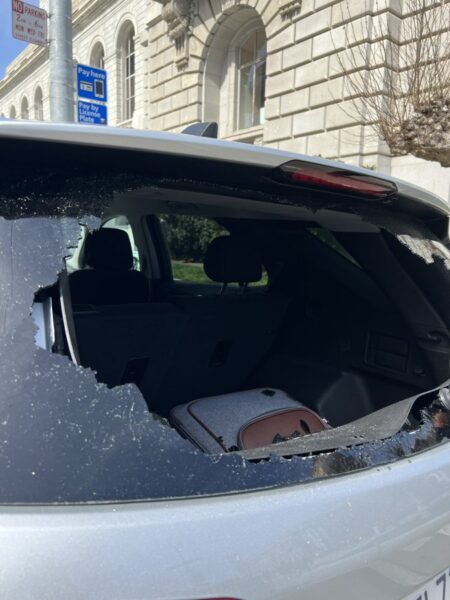
San Francisco Thieves ‘Did This in Under 4 Seconds’
“A CNN crew was robbed while trying to film a segment at City Hall in San Francisco, correspondent Kyung Lah revealed through Twitter on Friday, providing an image of the windshield to their rental car smashed in,” Zachary Leeman reported Saturday for Mediaite.
“ ‘Got robbed. Again. [CNN producer Jason Kravarik] & I were at city hall in San Francisco to do an interview for @CNN,’ Kah tweeted. ‘We had security to watch our rental car + crew car. Thieves did this in under 4 seconds. Security stopped the jerks from stealing other bags. But seriously – this is ridiculous.’ ”
SF News added Sunday, “Their security tried to apprehend the suspects on the scene but they drove away in a getaway vehicle which was a black-colored Infiniti with the license plate 9DJB515.[pictured below]. ‘San Francisco is a beautiful city. This is our 3rd day here and I’ve loved my time here. But if you do visit this city, know that even with hired security watching your car, it is not enough,’ Lah tweeted while sharing video of the shattered rear window of their car.
“The suspects got away with the crew’s equipment and Lah’s ID and passport.
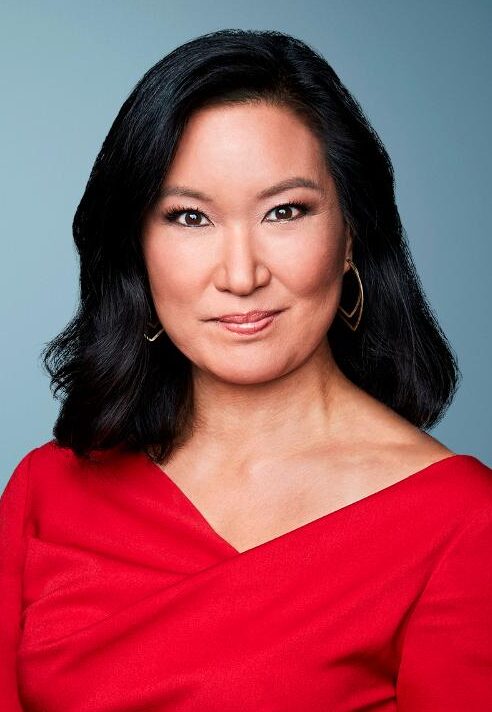 “ ‘Now I’m about to try to get an @SouthWestAir flight back to Los Angeles without ID or passport since they were both stolen. I’ll let you know how that goes…’ Lah (pictured) wrote. Since many get their cars broken into and their bags stolen, the airline issued the reporter a flight ticket after a brief security check.
“ ‘Now I’m about to try to get an @SouthWestAir flight back to Los Angeles without ID or passport since they were both stolen. I’ll let you know how that goes…’ Lah (pictured) wrote. Since many get their cars broken into and their bags stolen, the airline issued the reporter a flight ticket after a brief security check.
“She explained that the CNN crew were up in San Francisco covering a story about voter discontent caused by rampant street crime. Lah noted the irony.
“Later that day, Lah’s stolen bag was found by a woman named Perla who is with the Office of Civic Engagement and Immigrant Affairs.
“ ‘Happy to report SF residents are fighting for their city, like @OCEIA_SF. They are a community safety patrol program, speaking 17 languages, run by residents,’ Lah tweeted.
“Kravarik’s bag was later recovered with his computer missing but all his other personal items remained. . . .
 “According to reports, the rise in San Francisco crime led to the 2022 ousting of the city’s progressive district attorney Chesa Boudin . . . over 55% of residents voted him out in a historic recall election. Many San Francisco residents felt that Boudin was not hard enough on crime.” (Pictured: Getaway car, via Twitter)
“According to reports, the rise in San Francisco crime led to the 2022 ousting of the city’s progressive district attorney Chesa Boudin . . . over 55% of residents voted him out in a historic recall election. Many San Francisco residents felt that Boudin was not hard enough on crime.” (Pictured: Getaway car, via Twitter)
The Radio Television Digital News Association said last week it had sent letters to Florida’s congressional delegation asking it to reintroduce and take the lead in passing the Journalist Protection Act (JPA) during the 118th Congress.
“The legislation, first introduced in 2018, would make it a federal crime to intentionally intimidate or cause bodily harm to a journalist or media organization in the course of newsgathering or reporting. It would also allow the Justice Department to prosecute those who intimidate or assault journalists when local prosecutors decline to do so.
“We need Congress to act now. It is a dangerous time to be a journalist in America,” said Dan Shelley, president and CEO of RTDNA. “Years of anti-journalist rhetoric trumpeted by those in power has caused a dramatic and disturbing increase in attacks on the media. Unfortunately our members are increasingly at risk of serious harm.”
The association noted, “In late February, Dylan Lyons, a reporter for Spectrum News 13, was murdered and photojournalist Jesse Walden was severely injured by a gunman while reporting from a crime scene in Orlando, Florida. Lyons became the ninth journalist in the United States since 2015 to be murdered for doing his job. . . .”
Neo-Nazis, White Lives Matter, Patriot Front and Proud Boys storm a drag story hour event in Wadsworth, Ohio. “There will be blood,” shouted members of a neo-Nazi group calling itself Blood Tribe. Video posted by attendees and a documentary filmmaker shows a bald, white man swinging a black flag with a white swastika. The neo-Nazi group members point out the few Black people at the event. (Credit: Farina News / FNTV/ YouTube).
Black Reporter Flees as Neo-Nazis Disrupt Event
For his own safety, a Black reporter from the Akron (Ohio) Beacon Journal was forced to leave a planned drag queen storytelling event for children “after being called a racial slur several times by protesters,” Doug Livingston reported March 11, updated March 14, for the Beacon Journal.
The story did not identify the Black reporter, although the reporter’s byline appeared in previous coverage.
“Hundreds of protesters, including armed white supremacists, and LGBT-community supporters descended on Wadsworth’s Memorial Park on Saturday as a humanist group tried to put on a drag queen storytelling event for children,” Livingston’s story began.
“Toward the end of the four-hour event, two people charged with misdemeanor disorderly conduct were arrested after a series of melees involving pepper spray, the violent use of a flag pole as a weapon and a protester who unnerved witnesses when he pointed a gun at a crowd. (Police said Monday that the weapon is designed to shoot pepper spray and not bullets.)”
Neither the reporter nor Editor Michael Shearer responded to requests for comment.
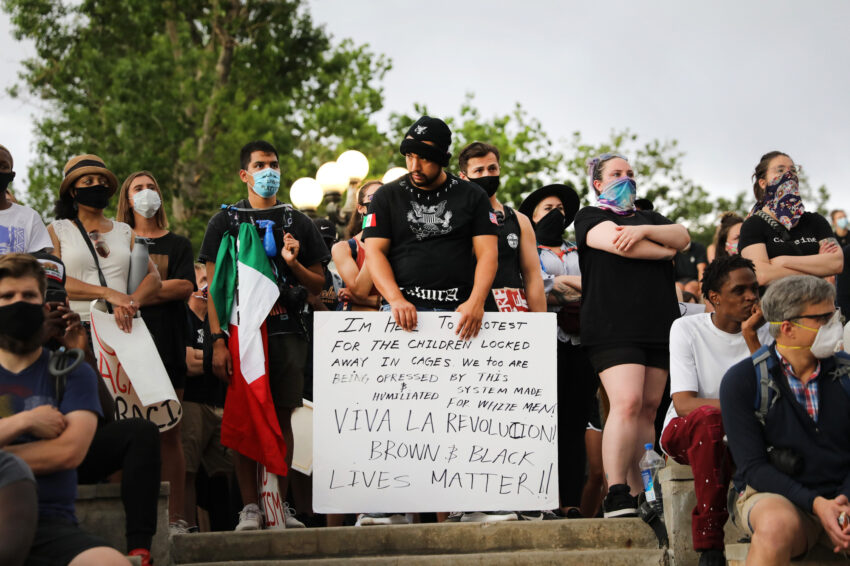
Latinos Nearly Missing in Coverage of Racism
“Latinos are barely part of the conversation in newspapers and online media outlets covering the issue of racial equity and racism, a new study has found,” Edwin Flores reported Wednesday for NBC News.
“Only about 6% of such news referred to Latinos, who make up nearly 20% of the American population and over 40% of all people of color, according to a report published Wednesday by the Berkeley Media Studies Group and UnidosUS.
“The study analyzed peak news cycles related to racism and racial equity issues, including wealth, housing and health in the U.S., following the onset of protests and protest anniversaries between May 1 and Sept. 30 in 2020, 2021 and 2022. . . .”
“About 40% of the articles mentioned solutions to issues of racial disparities and equity, like ways to improve housing and homeownership, educational attainment and closing the wealth gap. . . .
“The report recommended reporters broaden sources who come from diverse backgrounds and ask more nuanced questions, and it recommended more diversity in newsroom leadership and workspaces. . . .”
- Dr. Askshay Syal, NBC News: How diversifying Alzheimer’s genetic research studies is advancing treatment [Researchers identify a genetic variant associated with Alzheimer’s found only in Puerto Ricans] (March 6)
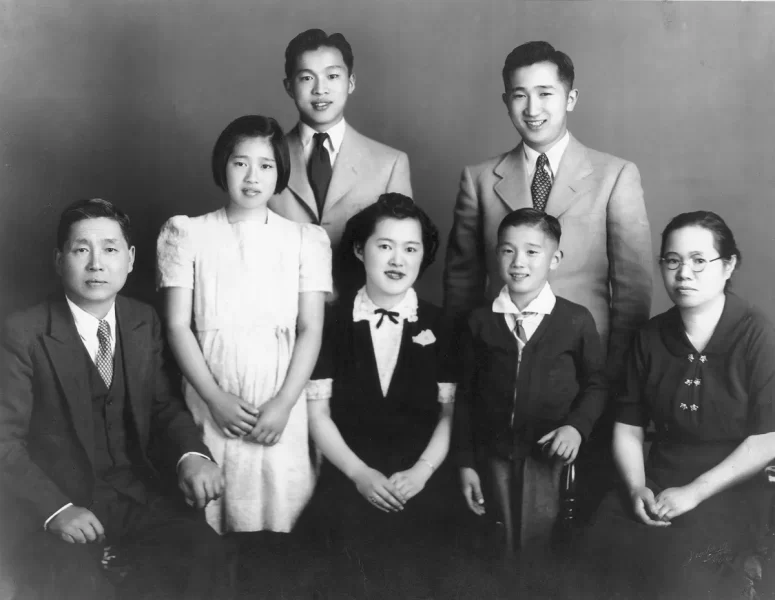
L.A. Times Drops ‘Internment’ for ‘Incarceration’
In “a historic decision aimed at accuracy and reconciliation, the Los Angeles Times announced Thursday that it would drop the use of ‘internment’ in most cases to describe the mass incarceration of 120,000 people of Japanese ancestry during World War II,“ Teresa Watanabe reported for the Los Angeles Times.
“Instead, The Times will generally use ‘incarceration,’ ‘imprisonment,’ ‘detention’ or their derivatives to describe this government action that shattered so many innocent lives.”
“We are taking this step as a news organization because we understand the power of language,’ Times Executive Editor Kevin Merida said in the story. “We believe it is vital to more accurately describe the unjust incarceration of Japanese Americans in the 1940s, and to do so in a way that does not diminish the actions our country took against its own citizens and the experience of those who were held captive.
“The Los Angeles Times itself supported the incarceration at the time, and this style change reflects our commitment as an institution to better represent the communities we serve. We hope this will help bring closure to the families of those unjustly incarcerated and deepen our society’s understanding of that period.”
Watanabe explained, “My grandfather, Yoshitaka Watanabe, was a subject of internment, a term most accurately used to describe the imprisonment of enemy aliens during wartime.”
- Alissa Falcone, Drexel University: Communications Professor Analyzes Local Media Coverage of Japanese-American Incarceration Camps (July 6, 2015)
- Naomi Tacuyan Underwood, Poynter Institute: Two years after the Atlanta shootings, equitable coverage of the AAPI community remains elusive
- Sakshi Venkatraman, NBC News: Is the umbrella term ‘Asian American’ even accurate anymore?
(March 11)
Black and Trans: Journo Industry ‘Doesn’t Hear Me’
One of the few mainstream news reporters who identifies as being Black and transgender took to Twitter Sunday to say, “As a Black trans man and gender-fluid reporter, I feel like the journalism industry does not hear me when I say I am still read as a Black woman and that I experience transphobia. Instead, people ignore my gender identity and act as if I am making it up.“
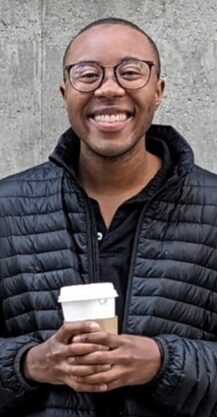 Tat Bellamy-Walker (pictured), since November a communities reporter at the Seattle Times, messaged Journal-isms Monday, “I have been open about my gender identity” at the Times. “I wrote the tweet after being misgendered by readers and facing consistent transphobia. This follows a long history of being pushed out of spaces and fighting transphobia, racism and misogyny on my own.
Tat Bellamy-Walker (pictured), since November a communities reporter at the Seattle Times, messaged Journal-isms Monday, “I have been open about my gender identity” at the Times. “I wrote the tweet after being misgendered by readers and facing consistent transphobia. This follows a long history of being pushed out of spaces and fighting transphobia, racism and misogyny on my own.
“There are not many Black trans reporters on staff in newsrooms due to transphobia, racism and an overall lack of support when compared to our white transgender peers.” Bellamy-Walker named five others, including Tre’vell Anderson, a board member of the National Association of Black Journalists, and Monica Roberts, who died in 2020.
 Anderson (pictured), who hadn’t been formally in a newsroom since 2019, agreed. “There aren’t great numbers tracking the prevalence of trans people in newsrooms, especially mainstream/traditional media,” Anderson said. “And the prevalence of those numbers, or lack thereof, is even worse for Black trans folks. Many newsrooms don’t track these numbers. When I did a not-quite-scientific callout on Twitter (maybe last year?) asking for Black trans reporters who were on staff in a major/legacy newsroom, Tat was the only one I was made aware of. . . . . It’s much more common in my experience that trans people, especially Black trans people, are freelancers and contributors, and that’s across mainstream and niche media,” Anderson continued.
Anderson (pictured), who hadn’t been formally in a newsroom since 2019, agreed. “There aren’t great numbers tracking the prevalence of trans people in newsrooms, especially mainstream/traditional media,” Anderson said. “And the prevalence of those numbers, or lack thereof, is even worse for Black trans folks. Many newsrooms don’t track these numbers. When I did a not-quite-scientific callout on Twitter (maybe last year?) asking for Black trans reporters who were on staff in a major/legacy newsroom, Tat was the only one I was made aware of. . . . . It’s much more common in my experience that trans people, especially Black trans people, are freelancers and contributors, and that’s across mainstream and niche media,” Anderson continued.
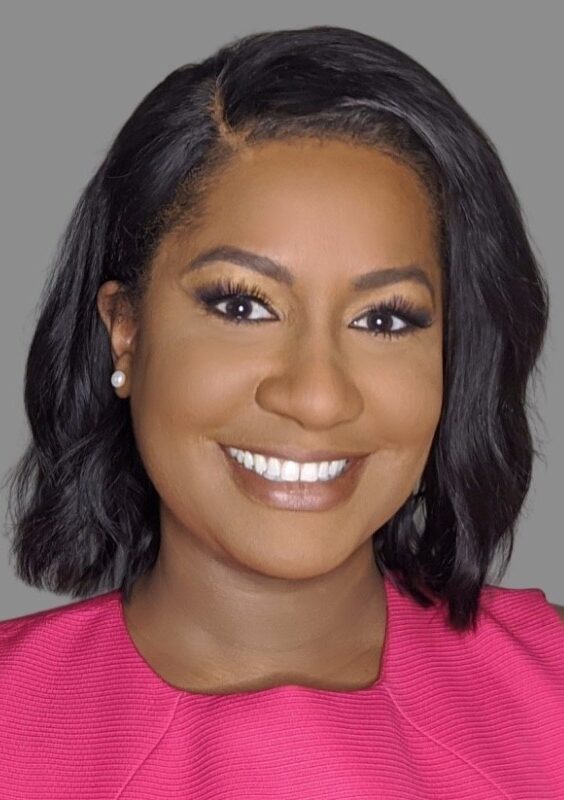 Femi Redwood (pictured), a host and managing producer of podcasts at New York’s WINS-AM and WCBS-AM and Anderson’s co-chair on the NABJ LGBT Task Force, seconded Anderson’s comments. She added, “Most of the non-binary and trans journalists I’ve come across working in newsrooms in staff positions are white, followed by non-Black POC (specifically Latino and AAPI).”
Femi Redwood (pictured), a host and managing producer of podcasts at New York’s WINS-AM and WCBS-AM and Anderson’s co-chair on the NABJ LGBT Task Force, seconded Anderson’s comments. She added, “Most of the non-binary and trans journalists I’ve come across working in newsrooms in staff positions are white, followed by non-Black POC (specifically Latino and AAPI).”
- Elliot Kukla, New York Times: Ancient Judaism Recognized a Range of Genders. It’s Time We Did, Too.
Miami Herald Turns ‘Woke Wars’ into Podcast
The Miami Herald’s opinion team has launched “Woke Wars,” an “eight-episode podcast series that goes deeper into Florida’s culture wars,” while journalists increasingly explain that “woke,” turned into an epithet by many conservatives, can mean whatever its users want it to.
“Through spirited debate and conversation, the opinion journalists that make up the Miami Herald Editorial Board will discuss immigration, ‘woke’ corporations, LGBTQ laws and the re-shaping of our state university system,” the Herald told readers. “Join us each week for exciting conversations, diverse perspectives and opinionated discourse on the war on woke.”
Meanwhile, Jen Psaki’s show on MSNBC debuted on Sunday, Tom Jones reported Monday for the Poynter Institute.
The former press secretary for the Biden White House said, “For Republicans, ‘wokeness’ is public enemy No. 1. By the sound of it, there is simply no greater threat to American liberty. Whether or not they actually believe it, they clearly think it’s a winning message ahead of 2024. And it makes you think, are they onto something? Should I be freaking out about how right-wing Republicans are co-opting ‘woke’ and ‘wokeism?’
“My gut here is no. You don’t need to be too worried about their war on ‘woke.’ Because the Republican crusade against ‘wokeness’ may not be as potent of a campaign issue as they hope. And here’s why: Most people don’t think of the term ‘woke’ in the way that Republicans would like them to. It’s simply not the boogeyman they’d have you believe.”
- Kevin B. Blackistone, Washington Post: Baseball can no longer ignore Ron DeSantis’s culture wars (March 5, updated March 6)
- Matthew Crowley, PolitiFact, Poynter Institute: Political definitions for ‘woke’ are all over the place (March 8)
- Ross Douthat, New York Times: What It Means to Be Woke
- Roy S. Johnson, al.com: ‘Woke!’ is the far right’s ‘sky is falling’; it fell on them (March 23, updated March 24)
- Matt Lewis, Daily Beast: The GOP Blew It By Calling Everything ‘Woke’ (March 10)
- Bethany Mandel, Newsweek: ‘I Was Asked to Define Woke. My Humiliation Went Viral’
- Clarence Page, Chicago Tribune: What doesn’t MAGA know about the ‘Black national anthem’? A lot (Feb. 15)
- Chris Quinn, cleveland.com: What does “woke” even mean? Don’t use it. Try civility, instead: Letter from the Editor
- Allison Wiltz, Medium: How Anti-Woke Became a Cowardly Slogan For a Racist Crusade (March 7)
Ad Spending in Diverse-Owned Media Ratchets Up
“Ad spend awarded to diverse-owned media grew by 80% per year between 2020 and 2022, versus 9% growth for ad spending as a whole, according to Diverse-Owned Media Ad Spend, a study by AIMM in partnership with MAVEN/Media Framework,” Ray Schultz reported March 7 for Media Post. “However, spending on diverse-owned media (DOM) totaled $1.4 billion, compared to $94.0% billion for all media.”
Separately, “Media buying agency GroupM said it is pledging to allocate 5% of its spending on media outlets owned by or focused on Black, Hispanic, Asian American and Pacific Islanders and LGBTQ+ Americans, Jon Lafayette reported March 9 for Broadcasting & Cable.
“The pledge expands GroupM’s Media Inclusion Initiative.
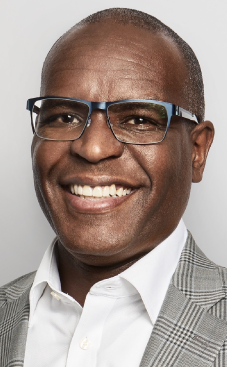 “ ‘As the largest media investment company in the world, we have a responsibility to accelerate growth through the next era of media,’ said Kirk McDonald (pictured), CEO, GroupM North America. ‘That means making our industry more inclusive and equitable for all publishers. As well as, sharing brands’ products and services with audiences that are representative of the changing face of America in service of growing their businesses.’ ”
“ ‘As the largest media investment company in the world, we have a responsibility to accelerate growth through the next era of media,’ said Kirk McDonald (pictured), CEO, GroupM North America. ‘That means making our industry more inclusive and equitable for all publishers. As well as, sharing brands’ products and services with audiences that are representative of the changing face of America in service of growing their businesses.’ ”
The Diverse-Owned Media Ad Spend study, Schultz reported, found “The share of dollars to Black and Asian media was disproportional to their representation of DOM-owned outlets.
“Black-owned media comprised 47% of DOM-owned outlets, while claiming 62% of the DOM ad spend.
“Asian-owned outlets made up 8.7% of the total, but claimed 22.3% of the ad dollars.
“In contrast, Hispanic-owned outlets were 34% of DOM, but realized only 14% of the total DOM spending. But ad sales grew by 56% to $19 million.
“Meanwhile, LGBTQ ad spend almost doubled from 2020 to 2022, to total $15 million. . . .”
- Andy Anderson, Association of National Advertisers: The Top 5 Reasons for Using Diverse-Owned Media Outlets (March 6)
- Inside Radio: As Diverse-Owned Media Ad Spend Grows, Black-owned Stations Seek Their Fair Share (March 9)
Sean Combs Joins Would-Be Bidders for BET
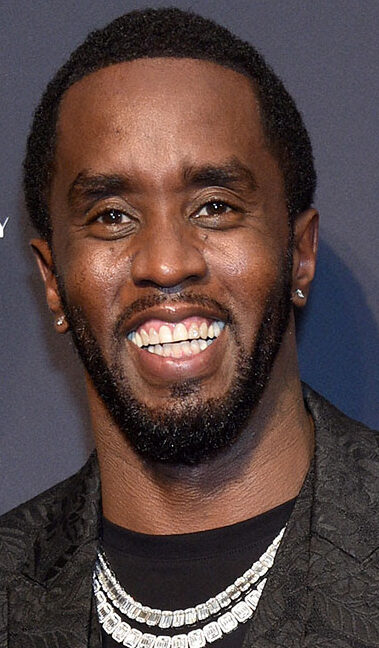 “There’s another potential bidder for Paramount’s BET businesses.
“There’s another potential bidder for Paramount’s BET businesses.
“Music mogul Sean ‘Diddy’ Combs (pictured) is exploring the opportunity to acquire a majority stake in the business, which includes BET, VH1, BET Studios and the streaming service BET+, a source familiar with the matter confirms,” Alex Weprin reported March 13 for the Hollywood Reporter.
“Combs joins an increasingly crowded field of possible buyers that includes current BET partner and producer Tyler Perry, as well as Weather Channel owner Byron Allen.
“Last week a source told The Hollywood Reporter that Perry, who owns a minority stake in BET+ through his current overall deal with Paramount, was interested in the buyout with his deal coming up for renewal. A spokesperson for Allen later said that the mogul “is interested in buying BET, and he will be pursuing the acquisition of the network.”
“Combs already has a presence on cable TV through his Revolt network, which launched a decade ago, though BET and VH1 are much more widely-distributed. . . .”
- Benjamin Mullin, New York Times: Third Black-Owned Company Emerges as Suitor for BET (March 10)
No Blacks in N.Y. Times Investigations Fellowship?
The New York Times has announced the seven journalists, including representation from Asian Americans but apparently not African Americans, who will become the inaugural class of its Local Investigations Fellowship, led by Dean Baquet (pictured below, by Texas Tribune). Baquet began working on the idea when he stepped down as executive editor of the Times last year.
The program “gives journalists the opportunity to produce signature investigative work focused on their state or region that will be published by The Times and made available for free for co-publication by local newsrooms,” the Times announced March 9.
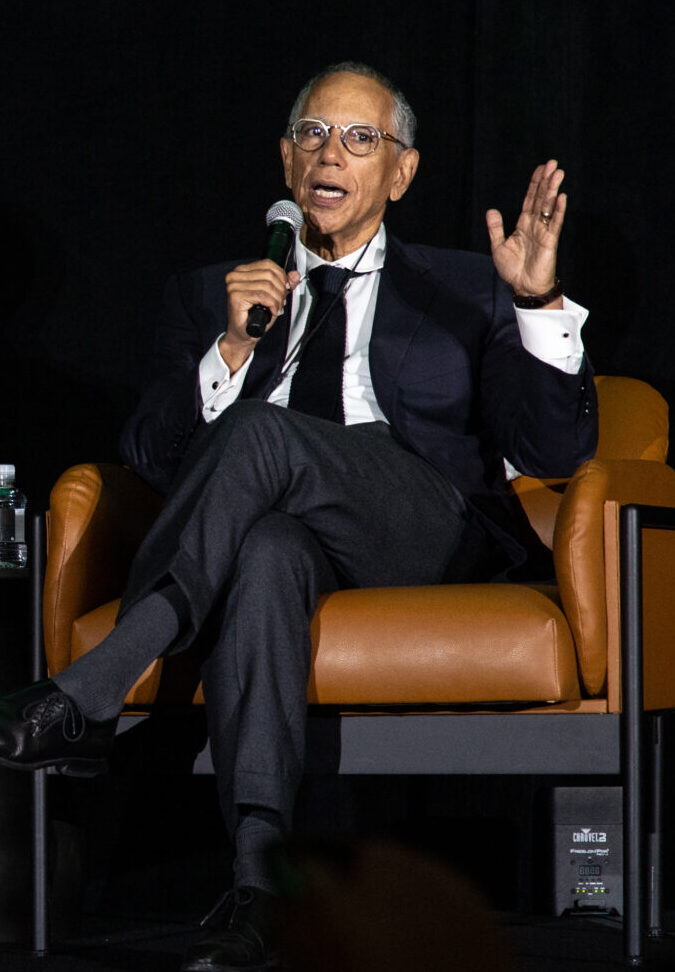 “There was so much talent out there and so many good ideas. These were hard choices. But this is a remarkable group of reporters. And their work will have an impact on their communities,” said Mr. Baquet.”
“There was so much talent out there and so many good ideas. These were hard choices. But this is a remarkable group of reporters. And their work will have an impact on their communities,” said Mr. Baquet.”
Baquet told the Journal-isms Roundtable in October how the fellowship concept originated: “When you hit 65, the tradition is that the executive editor steps down. I’d been editor for eight years. . . .,” he said.
“The publisher came to me and said, ‘Look, we don’t really want you to leave and we have this idea. You care deeply about investigative reporting. You also care deeply about diversity. Can we come up with something that marries those two?’ (video, at 13:14)
“Essentially, what we are going to do is, we’re going to pick a group of fellows every year to do investigative projects. Probably in the first year, it’ll be 10, but I hope it grows over time, and people will pitch investigative stories to us. We will pay their salaries. We’ll edit their stories. We will publish them in the New York Times, and wherever news organizations they’re from. Freelancers can apply, people who are not connected to a news organization can apply. I took a month off, so what I’ve been doing in the month since is visiting some newsrooms, talking to people, just getting a sense of what people want. . . .”
According to the announcement, “When the program launched in October 2022, editors on the fellowship team visited local newsrooms across the country to learn more about the challenges facing local news. In those conversations, Mississippi in particular emerged as a place that could benefit from more investigative reporting resources to supplement its strong mix of local news outlets. Three fellows are based in Mississippi, and are the first Times employees to be hired in the state. Additional fellows hail from Hawaii, Maine, Maryland and Wisconsin. All will report from the communities where they live. . . .”
The fellows are Shalina Chatlani, Ilyssa Daly, Callie Ferguson, Sarah Fowler, Mario Koran, Blaze Lovell and Alissa Zhu. (Updated March 26 to reflect that Koran identifies as Latino. “My father is Mexican,” he told Journal-isms.)
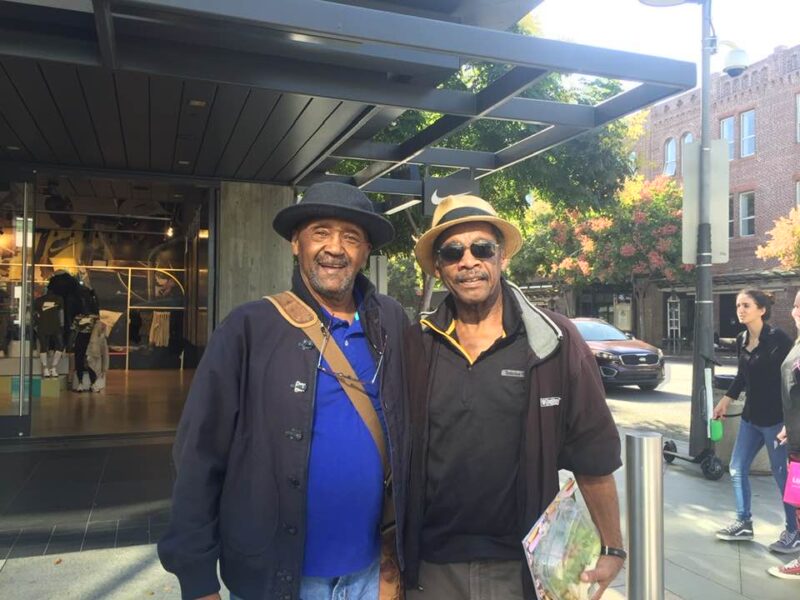
Frank Washington, Auto Columnist, Dies at 75
Frank Washington, a veteran of Newsweek and Time magazines, a producer for radio and television and the “About That Car” columnist whose work appeared in more than 230 Black-owned newspapers, died at 75 of esophageal cancer March 8 in a hospice in Detroit, his friend and colleague Greg Morrison told Journal-isms.
Another friend and colleague, Sylvester Monroe, posted this tribute on Facebook:
“I lost another dear friend to cancer today. Frank Washington and I met years ago when we were Newsweek correspondents. He was in the Detroit Bureau, and I was in Chicago. We also both worked at Time.
“It was always a treat to see Frank at NABJ conventions, where he was perennially one of the chief organizers of the legendary Newsweek parties on the last night of the conventions,” referring to the National Association of Black Journalists.
“Always impeccably dressed, Frank had an eye for the ladies, and they loved him back! He was also a great reporter and after Newsweek and Time, he became a major automobile writer crisscrossing the country to test drive the latest models of every nameplate.
“I always thought he was one of the most underrated and underappreciated writers in that field. Frank not only knew a lot about cars, he also was writing a book about the long, historical relationship between black people and cars, specifically how African Americans have been a cutting edge force in the design of American cars for decades. When the Chrysler 300 came out, I remember casually saying to him, ‘That’s a gangsta car if ever I saw one.’ To which he replied: ‘It was designed by a black man.’
“Beyond Frank’s journalism, he was not just a dear friend but one of my personal heroes. I so admired his strength and courage.
“He beat alcoholism and drug addiction, survived a brutal assault by unknown assailants that left him near dead with almost every bone in his face broken, and he survived Covid 19 in his 70’s. But through it all, not once or at any other time during the more than 40 years that I knew him, did I ever hear him complain about anything bad that ever happened to him.
“His daughter, Monica, told me that when he got the diagnosis of terminal cancer, all he said was: ‘I never expected to get out of my 70s. I’ve had a great life.’ That was Frank. I love you, brother. You will be sorely missed! This photo was taken the last time I saw him in 2018. We had lunch and walked on the Third Street Promenade in Santa Monica remembering good times. It was a beautiful day!! Rest now in Heavenly Peace, my old friend!”
- Stacy M. Brown, National Newspaper Publishers Association: Frank Washington, auto journalist and NNPA columnist, dies
Short Takes
- “A White House press briefing featuring the cast of ‘Ted Lasso’ was briefly derailed on Monday after a correspondent and frequent disruptor repeatedly interjected, prompting pushback from the White House Correspondents Association and other reporters,” Brett Samuels reported Monday for The Hill. “Simon Ateba, a correspondent for Today News Africa, began shouting out as press secretary Karine Jean-Pierre stepped to the podium, joined by actors Jason Sudeikis, Hannah Waddingham, Brett Goldstein, Brendan Hunt and Toheeb Jimoh. Ateba, who frequently speaks out of turn in the briefing room and has in the past clashed with Jean-Pierre [and predecessor Jen Psaki], claimed he and others in the room were being ‘discriminated against’ because of the questions they wanted to ask. ‘It’s been seven months. You’ve not called on me. I’m saying that’s not right,’ Ateba said. . . .”
 ABC News President Kim Godwin (pictured), who “has rarely engaged with the media in her time at ABC News, giving only three interviews in nearly two years at the helm,” talked with Charlotte Klein of Vanity Fair for a story published Thursday. The first African American to lead a broadcast network news division, named in April 2021, Godwin defended her leadership style. She said of the firing of T.J. Holmes and Amy Robach over their extramarital affair, “It’s very easy to Monday-morning quarterback and second-guess when you don’t know what you don’t know, and frankly you’ll never know, because we’re not going to litigate it publicly. We ended up where we needed to be, and I’m very comfortable with that decision.” Godwin also said, “I am in the job that I’ve earned through 40 years in the business,” noting that she’s done “just about every job in broadcast news,” including reporter, anchor, executive producer, and vice president. “I worked for all three networks, and I’ve worked for 10 different stations. So my résumé is strong.”
ABC News President Kim Godwin (pictured), who “has rarely engaged with the media in her time at ABC News, giving only three interviews in nearly two years at the helm,” talked with Charlotte Klein of Vanity Fair for a story published Thursday. The first African American to lead a broadcast network news division, named in April 2021, Godwin defended her leadership style. She said of the firing of T.J. Holmes and Amy Robach over their extramarital affair, “It’s very easy to Monday-morning quarterback and second-guess when you don’t know what you don’t know, and frankly you’ll never know, because we’re not going to litigate it publicly. We ended up where we needed to be, and I’m very comfortable with that decision.” Godwin also said, “I am in the job that I’ve earned through 40 years in the business,” noting that she’s done “just about every job in broadcast news,” including reporter, anchor, executive producer, and vice president. “I worked for all three networks, and I’ve worked for 10 different stations. So my résumé is strong.”
- “A New York City Council staffer has resigned after allegedly berating a female journalist with misogynistic slurs,“ Chris Sommerfeldt and Shant Shahrigian reported Sunday for the Daily News in New York. “Councilman Chris Marte said Sunday that his aide Steven Wong was resigning — after Marte initially stuck by his staffer. Marte, a Manhattan Democrat, initially refused to fire Wong after the staffer left four voicemails with a reporter at Chinese-language Sing Tao Daily, according to a complaint filed with the City Council. Wong allegedly called journalist Lotus Chau a ‘c–t’ and other offensive terms in Cantonese during the February verbal attacks. . . .”
- “At the invitation of the Black Media Initiative at CUNY’s Center for Community Media, I recently presented . . . new findings on reaching Black Millennials and Gen Z specifically,” Kevin Loker wrote March 9 for the American Press Institute. Key points: “1) Black Millennials and Gen Z get news daily from social media platforms at higher rates than white peers . . . 2) Many Black Americans under 40 get news daily on certain topics at higher rates than white peers. . . . 3) Black Americans under 40 are more likely than their white peers to pay or donate to news . . . . 4) Black Americans under 40 want many — but not all — of the same things from journalism as peers . . .”
- Earl Hopkins of the Philadelphia Inquirer, who covers “Philly’s arts and entertainment scene, focusing on the cultural trailblazers that help shape the city’s identity,” reports Friday that, “Local radio station WXPN aims to amplify the voices of Black musicians of country, bluegrass, roots, folk and other Americana genres through a new residency program. The Black Opry Residency, funded by The Pew Center for Arts & Heritage, is a project that gives five musicians from around the country a chance to take part in songwriting sessions, career development workshops, and networking opportunities with big-name industry leaders. . . .”
 “Tegna today appointed Tim Thomas (pictured) president and general manager at WTLV and WJXX, its NBC and ABC affiliates in Jacksonville, Fla., effective April 3,” TVNewsCheck reported Wednesday. “Thomas will be responsible for overseeing the stations’ operations across platforms, as well as leading community service efforts. Thomas joins WTLV and WJXX, known as First Coast News, from West Texas, where he was president and general manager and led all operations across KWES Odessa-Midland, KXVA Abilene and KIDY San Angelo. . . .”
“Tegna today appointed Tim Thomas (pictured) president and general manager at WTLV and WJXX, its NBC and ABC affiliates in Jacksonville, Fla., effective April 3,” TVNewsCheck reported Wednesday. “Thomas will be responsible for overseeing the stations’ operations across platforms, as well as leading community service efforts. Thomas joins WTLV and WJXX, known as First Coast News, from West Texas, where he was president and general manager and led all operations across KWES Odessa-Midland, KXVA Abilene and KIDY San Angelo. . . .”

- “The Center for Community Media at the Craig Newmark Graduate School of Journalism is taking a major step forward in promoting diversity in the media industry with the launch of the Asian Media Initiative,” Victoria Holmes wrote for Editor & Publisher. The program, aimed at increasing the representation of Asian Americans in media and journalism, will provide opportunities for students, journalists and aspiring media professionals to gain the skills and resources necessary to succeed in the competitive field of journalism. . . . This new initiative follows the successful launch of the Latino and Black Media Initiatives, which aimed to support and amplify the voices of underrepresented communities in media.
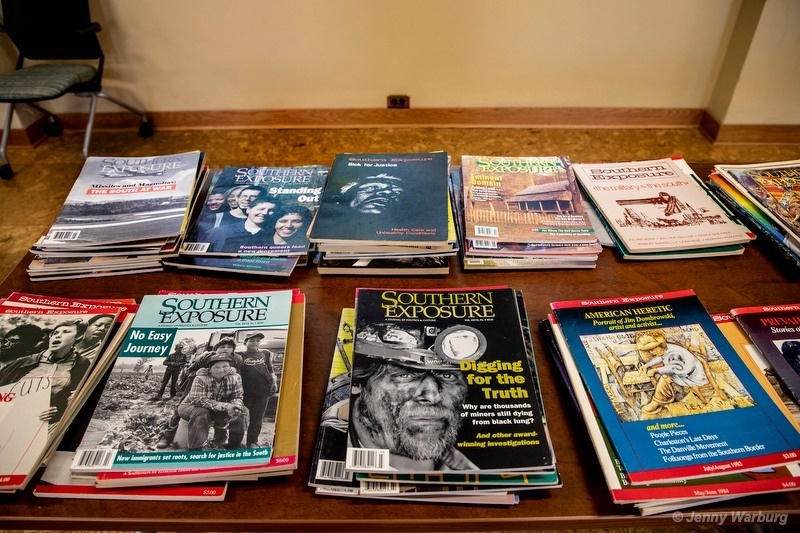
- Southern Exposure, founded in 1970 as the civil rights and antiwar movements “entered a new moment,” is celebrating its 50th anniversary with a bonus. “The Southern Exposure archive, which will be released in four installments throughout the year, contains a wealth of information that will be useful to researchers, writers, historians, journalists, and organizers seeking to answer questions of what came before and to understand what lies before us,” its owners said. “The journal’s writers and editors were audacious — taking big swings at the powerful, publishing the groundbreaking work of grassroots researchers and organizers, looking to history for lessons for their time. They asked cultural, political, racial, gender, and class questions of the region’s past and its present — always in service of a better future.”
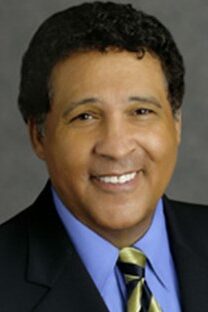 “CBS has signed Greg Gumbel (pictured) to a contract extension that will see the long-time announcer continue in his role as host of the network’s college basketball coverage while stepping down from doing play-by-play on NFL games,” John Ourand reported Wednesday for Sports Business Journal. “Gumbel currently is hosting the NCAA men’s basketball tournament studio show for CBS, marking his 25th year of hosting the March Madness show. Gumbel’s move to step away from the NFL is perhaps more significant, as he has been part of CBS’s NFL coverage for more than three decades. . . . “
“CBS has signed Greg Gumbel (pictured) to a contract extension that will see the long-time announcer continue in his role as host of the network’s college basketball coverage while stepping down from doing play-by-play on NFL games,” John Ourand reported Wednesday for Sports Business Journal. “Gumbel currently is hosting the NCAA men’s basketball tournament studio show for CBS, marking his 25th year of hosting the March Madness show. Gumbel’s move to step away from the NFL is perhaps more significant, as he has been part of CBS’s NFL coverage for more than three decades. . . . “
- “Luz Pena is one of the more high-profile reporters at Disney’s KGO in San Francisco, CA, but she’s been off the air since shortly after February 3rd,” the subscription-only NewsBlues column reported. “Pena crashed into a tree head-on at the Heavenly Ski Resort in Lake Tahoe, NV and was found by her husband and brother-in-law lying unconscious. Her leg was badly broken and centimeters away from severing a major artery. Since then, she’s been recovering from the horrifying experience and won’t be able to walk for awhile. She told of the incident recently on a KGO newscast. . . .”
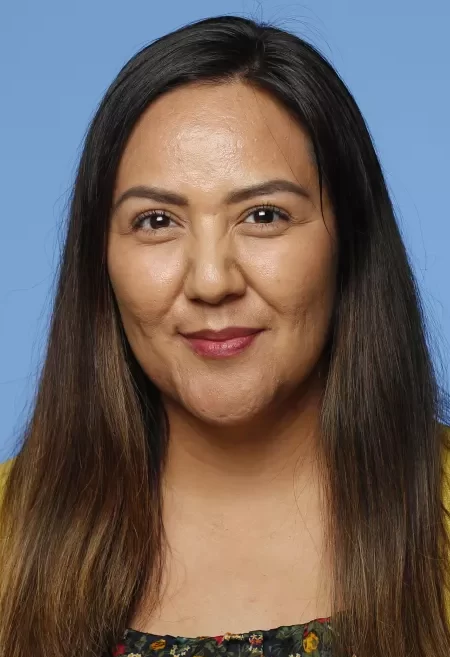 At the Los Angeles Times, “Jessica Perez (pictured) is joining the Latino Initiatives team as community editor,” the news operation announced March 7. “In this new role, Perez will help develop partnerships within the Latino community, assist in the creation and execution of live events and bring her news judgment and digital skills to our growing team. Perez will be joining the Latino Initiatives team after spending the last four years as an assistant editor on the News Desk, where she helps coordinate daily coverage, breaking news and the website’s homepage presentation. . . .”
At the Los Angeles Times, “Jessica Perez (pictured) is joining the Latino Initiatives team as community editor,” the news operation announced March 7. “In this new role, Perez will help develop partnerships within the Latino community, assist in the creation and execution of live events and bring her news judgment and digital skills to our growing team. Perez will be joining the Latino Initiatives team after spending the last four years as an assistant editor on the News Desk, where she helps coordinate daily coverage, breaking news and the website’s homepage presentation. . . .”
- “Black Americans have long had significantly lower wages and household wealth than White Americans,” Khadijah Edwards reported for the Pew Research Center. “The roots of these inequities trace back to the central role slave labor once played in the nation’s economic system and the subsequent segregation and discrimination in labor markets. Today, most Black adults say the U.S. economic system does not treat Black people fairly. And though they are increasingly dissatisfied with capitalism, most Black adults say supporting Black businesses will help achieve equality, according to recent Pew Research Center surveys. . . .”
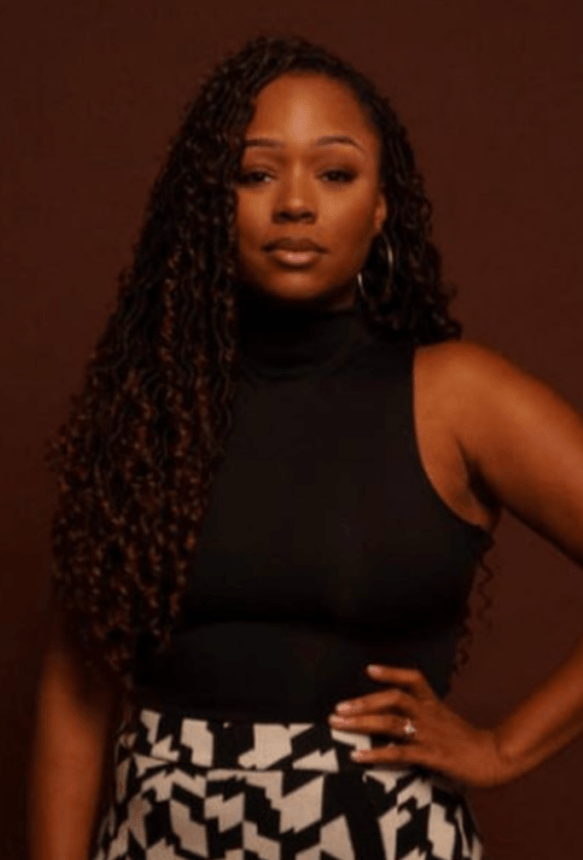 “Today is the last day our team will serve you all through The Plug,” founder Sherrell Dorsey (pictured) wrote Wednesday. Dorsey also said, “The Plug became the first Black business publication to syndicate on The Bloomberg Terminal in 2021. Our work featured in The Washington Post, LA Times, ADWeek, The Information, Bloomberg, and others. Our data has helped founders raise hundreds of thousands of dollars, accelerators launch in new markets, and bring visibility to ecosystem leaders who largely remain overlooked. . . . Most important: We made deep reporting and research on Black innovation matter.”
“Today is the last day our team will serve you all through The Plug,” founder Sherrell Dorsey (pictured) wrote Wednesday. Dorsey also said, “The Plug became the first Black business publication to syndicate on The Bloomberg Terminal in 2021. Our work featured in The Washington Post, LA Times, ADWeek, The Information, Bloomberg, and others. Our data has helped founders raise hundreds of thousands of dollars, accelerators launch in new markets, and bring visibility to ecosystem leaders who largely remain overlooked. . . . Most important: We made deep reporting and research on Black innovation matter.”
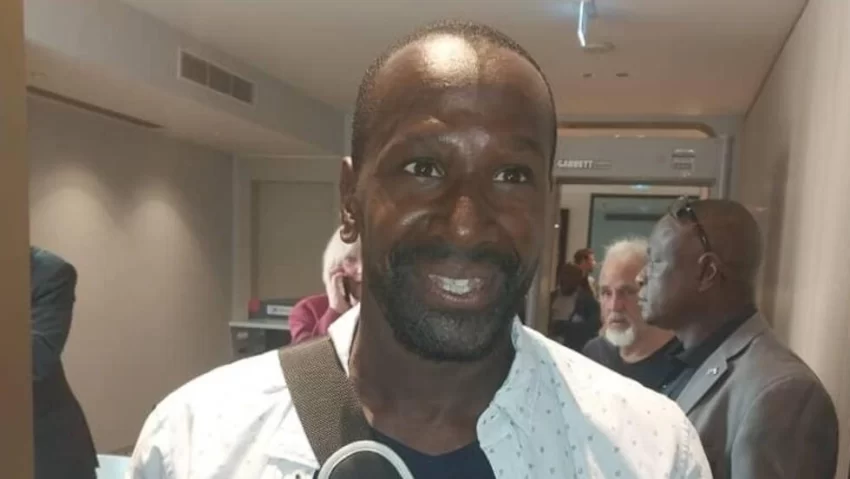
- “Olivier Dubois, a French journalist who was abducted in Mali’s Gao region (north) on April 8, 2021 by the al Qaeda-linked Group to Support Islam and Muslims (GSIM), was released on Monday and taken to neighbouring Niger,” France 24 reported Monday. “Dubois’s release came as US hostage Jeff Woodke was freed after more than six years in captivity in Africa. . . . Dubois worked for various French news outlets, including Libération, Le Point and Jeune Afrique, when he was kidnapped. He was held for almost two years.” The Committee to Protect Journalists’ Africa Program Coordinator Angela Quintal said from New York. “Mali’s conflict and constitutional crisis have acutely increased risks for journalists. While Dubois’ release is a relief, journalist safety continues to be concerning. We urge all parties, including jihadists, to refrain from criminal actions to silence the press.”
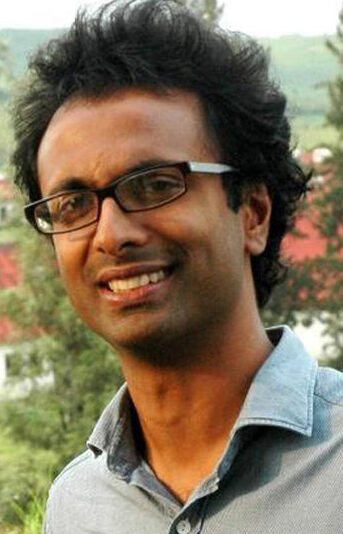 “A reporter’s perilous trip to document war in the Central African Republic” by Anjan Sundaram (pictured) in Columbia Journalism Review, makes Nieman Reports’ list of “the most interesting stories about Labby subjects: digital media, startups, the web, journalism, strategy, and more.” From the piece, published Tuesday: “The obscurity of the war made it hard to justify a reporting trip, which would require twleaving my family behind. I also found it difficult to persuade editors to commission a story. ‘Which central African republic?’ they asked.” The war “was perhaps even deadlier than the Syrian war, which at the time dominated newspaper headlines. But Central Africa, home to several long-running conflicts, rarely made the front page.. . . .”
“A reporter’s perilous trip to document war in the Central African Republic” by Anjan Sundaram (pictured) in Columbia Journalism Review, makes Nieman Reports’ list of “the most interesting stories about Labby subjects: digital media, startups, the web, journalism, strategy, and more.” From the piece, published Tuesday: “The obscurity of the war made it hard to justify a reporting trip, which would require twleaving my family behind. I also found it difficult to persuade editors to commission a story. ‘Which central African republic?’ they asked.” The war “was perhaps even deadlier than the Syrian war, which at the time dominated newspaper headlines. But Central Africa, home to several long-running conflicts, rarely made the front page.. . . .”
‘[btnsx id=”5768″]
To subscribe at no cost, please steend an email to journal-isms+subscribe@groups.io and say who you are.
Facebook users: “Like” “Richard Prince’s Journal-isms” on Facebook.
Follow Richard Prince on Twitter @princeeditor
Richard Prince’s Journal-isms originates from Washington. It began in print before most of us knew what the internet was, and it would like to be referred to as a “column.” Any views expressed in the column are those of the person or organization quoted and not those of any other entity. Send tips, comments and concerns to Richard Prince at journal-isms+owner@
View previous columns (after Feb. 13, 2016).
View previous columns (before Feb. 13, 2016)
- Diversity’s Greatest Hits, 2018 (Jan. 4, 2019)
- Book Notes: Is Taking a Knee Really All That? (Dec. 20, 2018)
- Book Notes: Challenging ’45’ and Proudly Telling the Story (Dec. 18, 2018)
- Book Notes: Get Down With the Legends! (Dec. 11, 2018)
- Journalist Richard Prince w/Joe Madison (Sirius XM, April 18, 2018) (podcast)
- Richard Prince (journalist) (Wikipedia entry)
- February 2018 Podcast: Richard “Dick” Prince on the need for newsroom diversity (Gabriel Greschler, Student Press Law Center, Feb. 26, 2018)
- Diversity’s Greatest Hits, 2017 — Where Will They Take Us in the Year Ahead?
- Book Notes: Best Sellers, Uncovered Treasures, Overlooked History (Dec. 19, 2017)
- An advocate for diversity in the media is still pressing for representation, (Courtland Milloy, Washington Post, Nov. 28, 2017)
- Morgan Global Journalism Review: Journal-isms Journeys On (Aug. 31, 2017)
- Diversity’s Greatest Hits, 2016
- Book Notes: 16 Writers Dish About ‘Chelle,’ the First Lady
- Book Notes: From Coretta to Barack, and in Search of the Godfather
- Journal-isms’ Richard Prince Wants Your Ideas (FishbowlDC, Feb. 26, 2016)
- “JOURNAL-ISMS” IS LATEST TO BEAR BRUNT OF INDUSTRY’S ECONOMIC WOES (Feb. 19, 2016)
- Richard Prince with Charlayne Hunter-Gault, “PBS NewsHour,” “What stagnant diversity means for America’s newsrooms” (Dec. 15, 2015)
- Book Notes: Journalists Follow Their Passions
- Book Notes: Journalists Who Rocked Their World
- Book Notes: Hands Up! Read This!
- Book Notes: New Cosby Bio Looks Like a Best-Seller
- Journo-diversity advocate turns attention to Ezra Klein project (Erik Wemple, Washington Post, March 5, 2014)

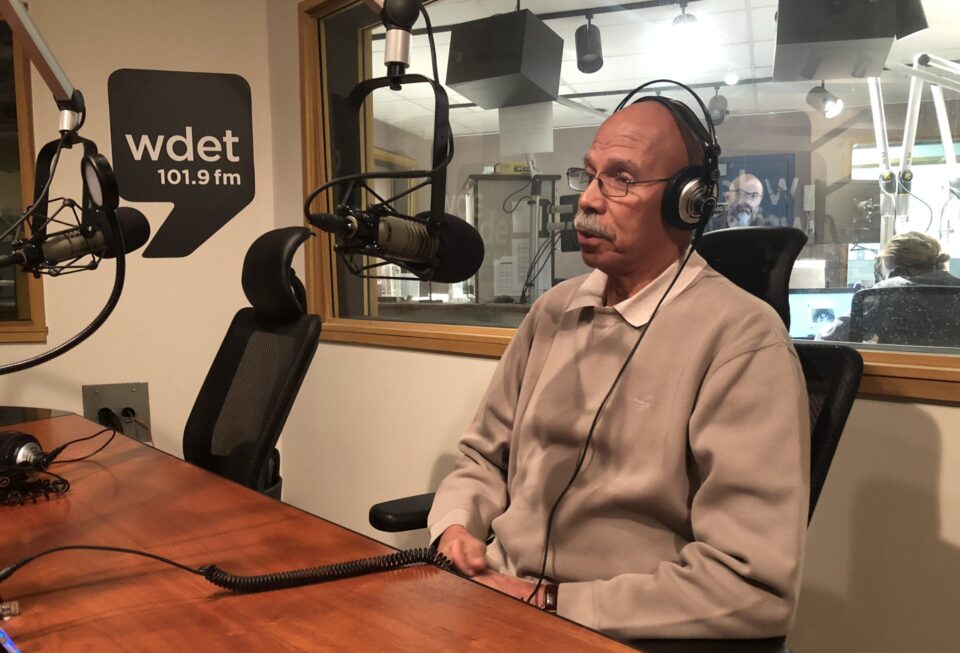
13 comments